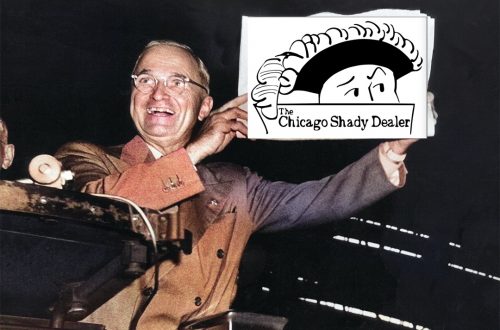Law School Introduces “Accelerated Graduation Plan” for Future Justices
CHICAGO — In an unprecedented move, University of Chicago Law School Dean Thomas J. Miles announced today that the law school is introducing a new “accelerated graduation plan” for law school students with “strong academic records and good physical fitness” interested in serving on the U.S. Supreme Court.
“At Chicago, we’re always seeking to provide the best opportunities for our students,” Miles said. All students will be eligible to apply to graduate under the plan, but only a handful of students will be selected, based on criteria including age, grades, physical condition, Federalist Society membership, and family medical history.
While the Law School has produced dozens of federal courts of appeals judges, including failed Supreme Court nominee Robert Bork, no U of C alum has ever won a seat on the high court. As the court has become increasingly politicized, however, both parties are increasingly seeking to nominate young candidates who can serve on the court for decades. This trend, Dean Miles said, “creates a unique opportunity for the University of Chicago” to leapfrog schools like Harvard, Yale and Stanford, which have traditionally produced the majority of justices.
The youngest name on President Trump’s shortlist to replace Justice Ruth Bader Ginsburg is Allison Jones Rushing, a 38-year-old circuit court judge, but Miles explained that the “inefficient process” of accumulating experience as a federal judge could be circumvented by the Law School’s new program. The one-year course will train students through a series of simulated Senate confirmation hearings, the only barrier a judicial nominee needs to overcome before they’re allowed to serve as a federal judge for the rest of their life.
The new program will not be limited to current law school students. Professor M. Todd Henderson explained that the Constitution does not actually include any educational requirements to become a Supreme Court Justice. “Historically, you had many justices who did not attend law school or even graduate high school. The average age of a federal judge in 1789 was just 45, and there’s no reason to believe the Founders would have been opposed to a talented high school student or even an extraordinarily gifted toddler serving on the Court.”
As part of their new focus on the Supreme Court, the Law School has also announced an exciting new collaborative venture with the Pritzker School of Medicine to explore the possibility of reanimating past justices. “Though his soul has long since departed the mortal plane,” Professor of Medicine Stacie Levine said, “we believe there is a significant possibility of allowing Justice Scalia to return to judicial service.”




